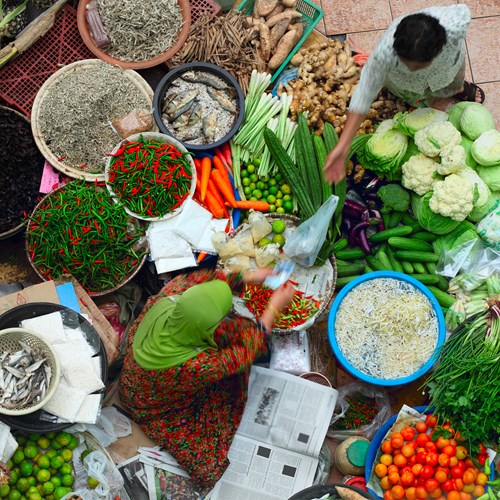
Surabaya, Indonesia
Founded nearly eight centuries ago, Indonesia’s second-largest city has seen empires come and go. The founders of the Hindu Majapahit Empire arrived in the late 13th century and remained until the 17th, to be followed by Muslim rulers of Mataram, then the colonialists of the Dutch East India Company. In recent decades, Surabaya has grown into a cosmopolitan seaport and conurbation where 21st-century hotels, apartment towers, and shopping malls stand next to historic mosques and palaces.
Population:
3,114,700
Currency:
Indonesian Rupiah (IDR), 1 Rp = 100 cents
Emergency Numbers:
Fire Brigade: 113
Emergency: 118
Police: 110
Opening Hours:
Business hours in Surabaya are from 8/9 am-4/ 5pm Monday-Friday. Many shopping malls remain open until 10 pm or later. Many street markets do not open until around 7 pm and remain as late as midnight. Smaller shops close from dusk on Friday until Saturday night.
Newspapers:
Jakarta Post
Tempo
Jakarta Javakini
The City

For centuries, Surabaya has attracted immigrants from the Javanese hinterland, the neighbouring island of Madura, and from all the islands of Indonesia. As a result, the city is an ethnic melting pot, including an Arab quarter founded by traders from the Middle East, and a Chinese quarter inhabited by the descendants of traders who settled here more than five centuries ago.
On the south bank of the Kalimas River estuary, Surabaya is a fast-growing modern city: the second largest in Indonesia and one of the country’s major centres for shipbuilding, heavy manufacturing and light industry. It is also a major financial centre, and ambitious new developments for the future include the construction of Southeast Asia’s longest bridge, linking the city to the island of Madura.
The pace of life in the bustling city centre can be overwhelming for the first-time visitor. Limousines, taxicabs, buses, bemo minibuses and becak scooter-taxis jostle for space on the busy avenues, where gleaming hotel, apartment and office towers dominate. A few blocks inland from the waterfront, Kampung Arab (Arab Quarter), is a labyrinth of old-fashioned chophouses and narrow, colourful streets reminiscent of the city’s mercantile past. Chinatown straddles Jalan Kembang Jepun.
Do & See

Much of Surabaya’s heritage has been swept away by fast-paced modernisation, and the city was also heavily damaged in the aftermath of World War II during the struggle for independence, earning its title the "Hero City" of Indonesia. As a result, it has rather few major visitor attractions, but boasts a couple of distinct neighbourhoods, each with its own distinct flair, including the Arab Quarter and Chinatown. Surabaya is also home to Masjid Nasional Al Akbar, one of Southeast Asia's most imposing modern mosques.
Dining

Indonesia’s favourite dish, nasi goreng (mixed fried rice) is on the menu everywhere, from hotels' breakfast tables to simple open-air food stalls. Surabaya’s cuisine is as varied as its people, with restaurants serving a host of Indonesian favourites.
Chicken and beef are the most common fowl and meat dishes. Indonesia is predominantly a Muslim country, and pork is a rarity. Hawker stalls and food markets purvey regional delicacies from all over the country. At these, you order what you want from any of dozens of vendors and find a table wherever you can.
Kayoon Park, on the west bank of the Kayoon River, is filled with food stalls selling East Javanese and Madurese favourites soon after sundown. As well as these typical treats, most major hotels have as many as half a dozen restaurants serving western-international, Chinese, Japanese, and Indian food. Many of the best restaurants can be found in larger hotels, but budget travellers will find plenty of modestly priced eateries all over.
Cafes

Considering that coffee is one of the biggest assets of East Java, having a cup of coffee in Surabaya is an experience not to be missed. There are plenty of cafés in the city, many offering western-style pastries and cakes, along with more substantial meals.

